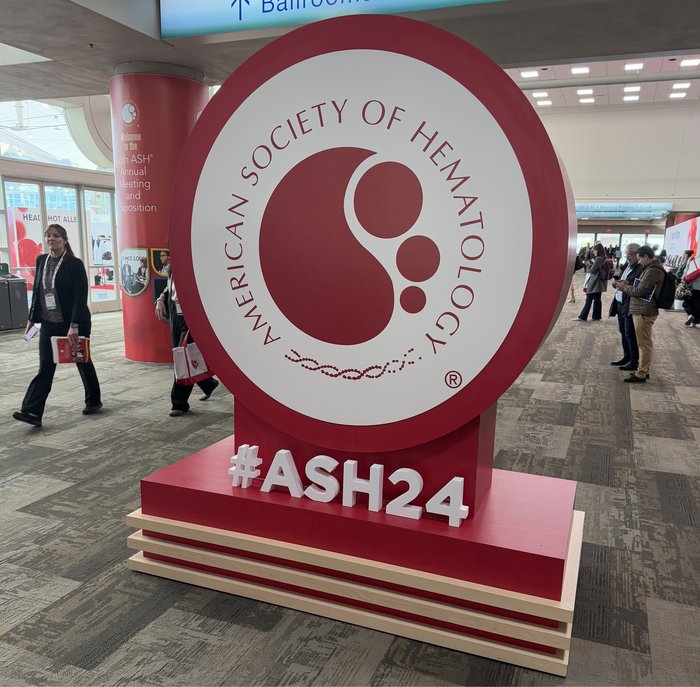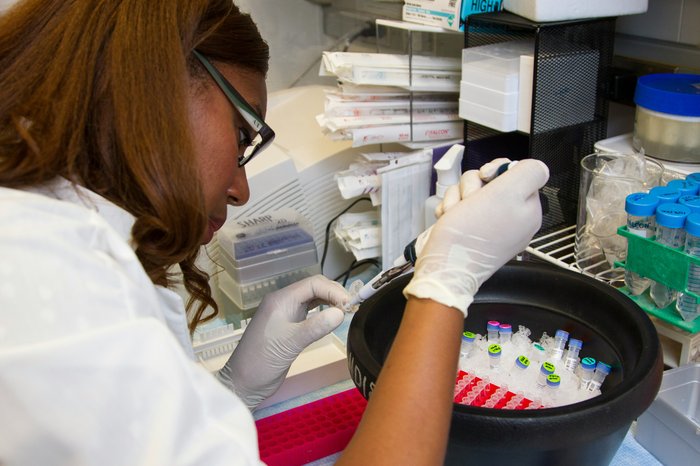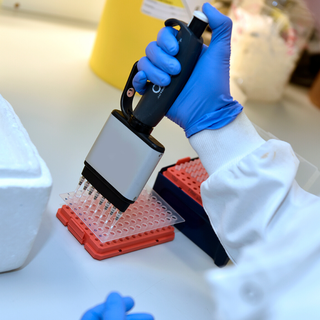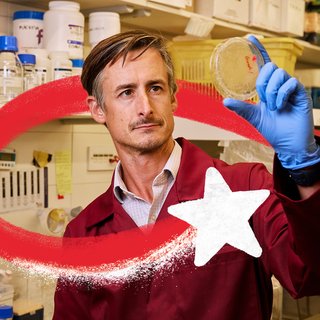Our highlights from the 2024 ASH conference
As 2024 came to a close, the largest blood cancer conference took place across the pond. The annual American Society of Haematology (ASH) conference is an event that brings together some of the greatest minds in blood cancer research.

Every year experts from all around the globe gather – this year around 30,000 came - to share their exciting research breakthroughs.
We’ve taken the time to digest the vast amount of science presented and share some of the highlights with you.
Enhancing cutting-edge cancer treatment so that it works better and lasts longer
CAR-T cell therapy has been a game-changer, transforming the treatment for many types of blood cancer. This form of treatment has even been a source of hope to many when other treatments have failed. This treatment involves taking T-cells (blood cells that help to protect you from infection and disease) from someone with blood cancer, modifying them in a lab and then giving them back to the patient to seek out and destroy cancer cells. While CAR-T therapy is an effective treatment for some people, it doesn't work for everyone and can also have very challenging side effects.
Boosting CAR-T effectiveness
At ASH 2024 researchers unveiled how they’ve discovered a molecule that helps activate the T-cells vital for CAR-T therapy. By tweaking this molecule, they were able to extend the lifespan of CAR-T cells and make them more effective at fighting the cancer cells.
Targeting multiple cancer markers
Other researchers revealed they had created CAR-T cells that can target two, three, or even four different markers on cancer cells. This approach makes it harder for the cancer to escape treatment. The researchers also added features to CAR-T cells to help stop them from becoming exhausted by the cancer cells and block the cancers attempts to fight back, which weaken this treatment. These improvements could make CAR-T therapy work better for more people with blood cancer.
Paving the way for new targeted treatments
Improvements to CAR-T therapy weren’t the only item on the agenda, lots of presentations focussed on the new drugs and therapies coming through the pipeline.

New treatments for AML
New treatments involving blocking a specific protein called Menin are showing early promise for people with acute myeloid leukaemia (AML) who have already tried other therapies. Menin is crucial for the growth of cancer cells. Researchers presented findings where 22% of people responded to a drug called revumenib, which is able to block menin, stopping cancerous cells from being able to grow and multiply. While this new treatment shows promise, more research is still needed to understand how blocking the menin protein can be used in treating AML.
New drugs for myeloma
There were a number of researchers sharing findings about a new set up treatments known as bispecific antibodies. These are specific antibody designed to recognise and attach to the cancer cells and immune cells, so that the body’s immune system can destroy them.
Many people at the conference were talking about this treatment as being on the cusp of a new therapy landscape for people with myeloma.
Some drugs like teclistamab for myeloma as already shown to be effective when used alongside other treatments.
Research presented also showed daratumumab, a type of immunotherapy to be incredibly versatile. When used alongside standard treatment it was able to slow the progression of the myeloma in individuals who are unable to have a stem cell transplant. It has also shown benefits when used early to prevent the disease from worsening, which could make a big difference for people newly diagnosed with the disease.
Promising advances in lymphoma treatment
Exciting advances were announced in treating several types of lymphoma, a type of blood cancer that affects the lymphatic system.
Several researchers shared findings where they had trialled combining a targeted cancer therapy called loncastuximab tesirine alongside other drug treatments such as rituximab and ventoclax.
Combining these two treatments showed to increased patients’ power to fight the cancer, especially in cases where the lymphoma hasn't responded to other treatments like CAR T-cell therapy. This drug combination has fewer side effects compared to other treatments such as chemotherapy, which could improve quality of life for people with follicular and marginal zone lymphoma who receive these treatments.
Looking to the future
These are just a few of the highlights. With nearly 8,000 research discoveries shared at ASH 2024, it’s almost impossible to share them all with you. What is clear, is that it is the collaborative efforts of passionate researchers that will get us to a point where we beat blood cancer.
At Blood Cancer UK, research is at the heart of what we do as an organisation. Thanks to you, our incredible Blood Cancer UK community we’re able to be fund world-class research. We hope to share more about the research we are funding and the impact it’s having with you as the year goes on.


